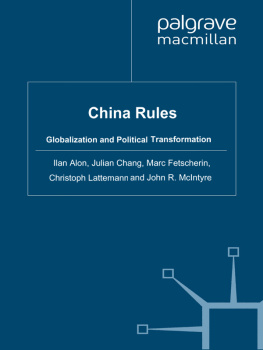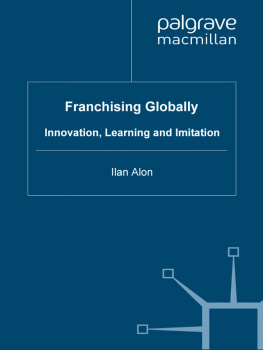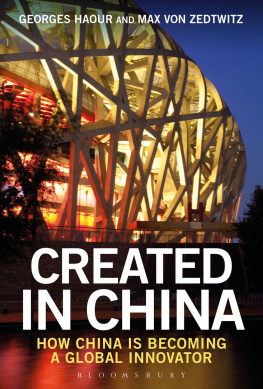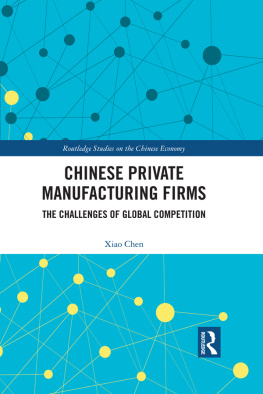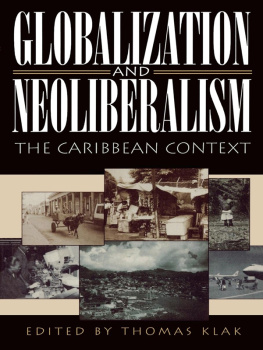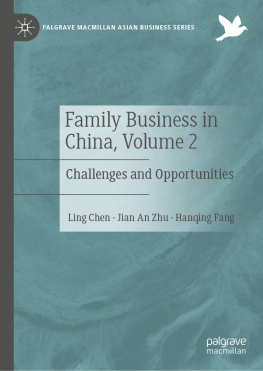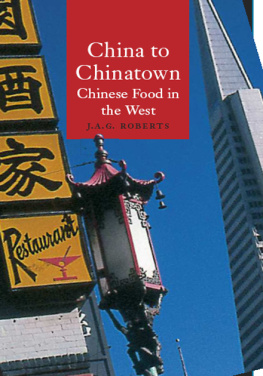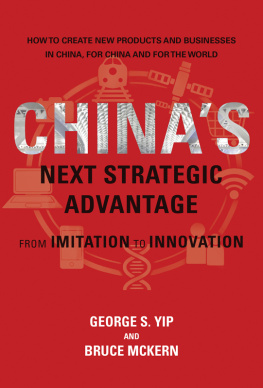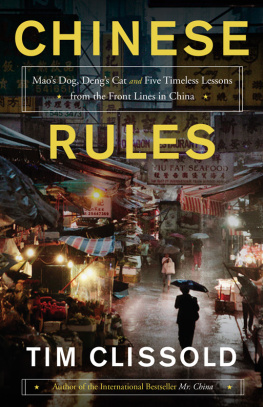China Rules
Also by Christoph Lattemann
GOVERNANCE IN A GLOBALIZED WORLD (with S. Kupke)
GOVERNANCE-THEORIEN ODER GOVERNANCE ALS THEORIE? (with D. Wagner, S. Kupke and A. Legel)
Also edited by Julian Chang
PRESIDENTIAL POLITICS IN TAIWAN: The Administration of Chen Shui-Bian (with Steven Goldstein)
ECONOMIC REFORM AND CROSS-STRAIT RELATIONS: Taiwan and China in the WTO (with Steven Goldstein)
Also edited by Ilan Alon
A GUIDE TO TOP 100 COMPANIES IN CHINA, SINGAPORE: World Scientific (with Wenxian Zhang)
BIOGRAPHICAL DICTIONARY OF NEW CHINESE ENTREPRENEURS AND BUSINESS LEADERS (with Wenxian Zhang)
GLOBALIZATION OF CHINESE ENTERPRISES (with John McIntyre)
Also by John R. McIntyre
GLOBALIZATION OF CHINESE ENTERPRISES (with Ilan Alon)
BUSINESS AND MANAGEMENT EDUCATION IN TRANSITIONING AND DEVELOPING COUNTRIES: A Handbook (with Ilan Alon)
China Rules
Globalization and Political Transformation
Edited by
Ilan Alon, Julian Chang, Marc Fetscherin, Christoph Lattemann and John R. McIntyre


Selection and editorial content Ilan Alon, Julian Chang, Marc Fetscherin,
Christoph Lattemann and John R. McIntyre 2009
Individual chapters contributors 2009
Foreword Tarun Khanna 2009
All rights reserved. No reproduction, copy or transmission of this publication may be made without written permission.
No portion of this publication may be reproduced, copied or transmitted save with written permission or in accordance with the provisions of the Copyright, Designs and Patents Act 1988, or under the terms of any licence permitting limited copying issued by the Copyright Licensing Agency, Saffron House, 6-10 Kirby Street, London EC1N 8TS.
Any person who does any unauthorized act in relation to this publication may be liable to criminal prosecution and civil claims for damages.
The authors have asserted their rights to be identified as the authors of this work in accordance with the Copyright, Designs and Patents Act 1988.
First published 2009 by
PALGRAVE MACMILLAN
Palgrave Macmillan in the UK is an imprint of Macmillan Publishers Limited, registered in England, company number 785998, of Houndmills, Basingstoke, Hampshire RG21 6XS.
Palgrave Macmillan in the US is a division of St Martins Press LLC,
175 Fifth Avenue, New York, NY 10010.
Palgrave Macmillan is the global academic imprint of the above companies and has companies and representatives throughout the world.
Palgrave and Macmillan are registered trademarks in the United States, the United Kingdom, Europe and other countries.
ISBN: 9780230576254 hardback
This book is printed on paper suitable for recycling and made from fully managed and sustained forest sources. Logging, pulping and manufacturing processes are expected to conform to the environmental regulations of the country of origin.
A catalogue record for this book is available from the British Library.
A catalog record for this book is available from the Library of Congress.
10 9 8 7 6 5 4 3 2 1
18 17 16 15 14 13 12 11 10 09
Printed and bound in Great Britain by
CPI Antony Rowe, Chippenham and Eastbourne
Tables
Figures and Graphs
Figures
Graphs
Foreword
I was grateful to have been asked to keynote the conference, China Goes Global, held by a consortium of universities at the Harvard Kennedy School in 2008. While events regarding China and India, or the so-called BRIC countries, are increasingly numerous, it is rare to find a collection of a large number of serious scholars and observers dedicated to understanding any one of these countries in the depth that this event did.
On my initial perusing of the draft papers at the conference stage, my thoughts gravitated to two issues, one on which China is a leader and one on which it is a laggard. The issues refer, first, to the resurgence of the state, and, second, to the emasculated role of civil society in China.
Why are these of interest to a conference focused on China going global? That is an easy question to answer for the first topic, most of the outbound investment from China is in the form of entities controlled by the state, including conventional state-owned-enterprises but also the newer sovereign wealth funds. It is easier to understand both antecedents and consequences of the globalization of state-controlled entities with a deeper appreciation of the political economy of the Chinese state, as a number of papers and presentations at the conference did skillfully. And the rest of the world can learn about some aspects of the management of state-owned enterprises, particularly at a time that even market-based economies are being forced by rampant financial distress to accept a greater role for the state.
As an example, consider the energy industry. Increasingly, China, Russia, the Middle East, and other oil-producing regions are ensuring that a greater percentage of the worlds oil resources are in the hands of state-owned enterprises, muscling aside the Western majors (BP, Amoco, Total, Exxon). Even joint ventures between state-owned enterprises are becoming more commonfor example, consider a Kuwaiti investment in a US $5 billion refinery in Guangdong province, a Saudi crude oil facility on Hainan Island, and a potential Saudi Aramco-Sinopec joint venture. Clearly understanding the motivations of state-owned enterprises is key.
What about civil society? A vibrant civic consciousness exists in China, of that there can be no doubt. The response by Chinese citizens to provide aid to victims of the Chengdu earthquake in Sichuan province in May 2008 provided recent evidence. But civic consciousness has not been allowed to develop unfettered in China. It is true that there are several hopeful changesfor example, media is free to discuss most economic issuesbut several more are feasible. Ultimately, a robust civil society will ensure a fuller consensus among the Chinese people for all manner of issues, including the nature and extent to which China remains open to the outside world.
Social scientists learn from variation, and inter-country experience comparisons are an important source of such variation. Consider the China-India comparison, a subject of recent interest to me. The strength of the Chinese state is brought starkly into relief by comparing it to Indias; and the weakness of Chinas civil society is likewise highlighted by comparing it to the efflorescence of Indias. It was refreshing to comparative reasoning reflected in the conference papers, presentations and discussions.
Of course, these issues are merely illustrative, certainly not the only ones of great salience. The assembled papers provide informationdescriptive, clinical information as well as information more in the vein of hypothesis testingon a range of topics concerning why, how, and where Chinese firms have gone global, and to what effect.
It gives me pleasure to commend this collection to any serious observer of China, academic, policymaker or manager.
TARUN KHANNA
Harvard Business School
Harvard University
Cambridge, MA
January 2009
Notes
. Rawi Abdelal, Ayesha Khan, and Tarun Khanna. Where oil-rich nations are placing their bets. Harvard Business Review, 86 (9) (September 2008): 119128.
. Tarun Khanna. Billions of Entrepreneurs: How China and India Are Reshaping Their Futures and Yours
Next page
